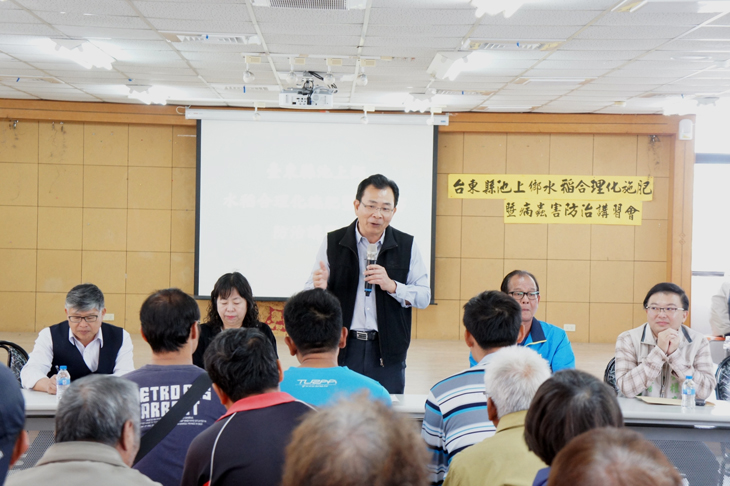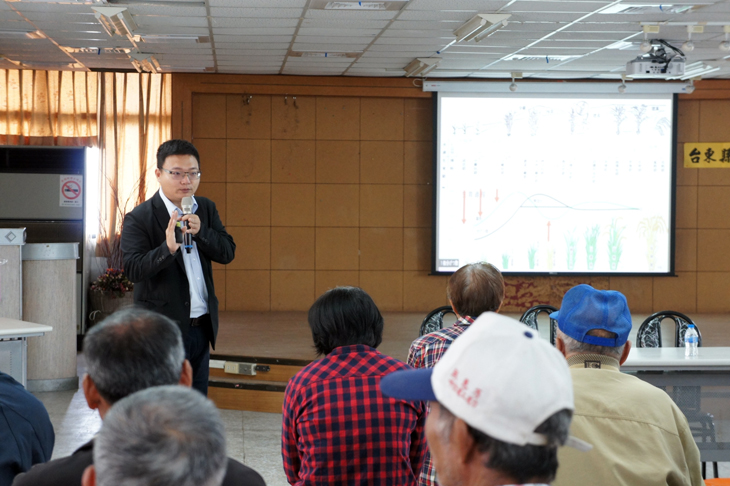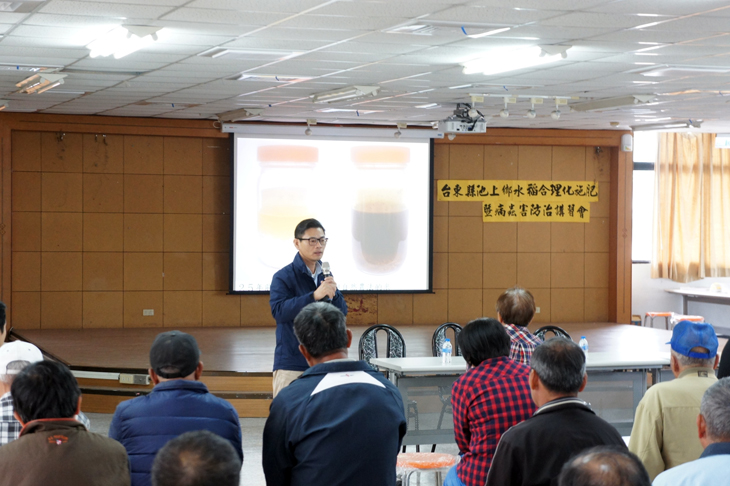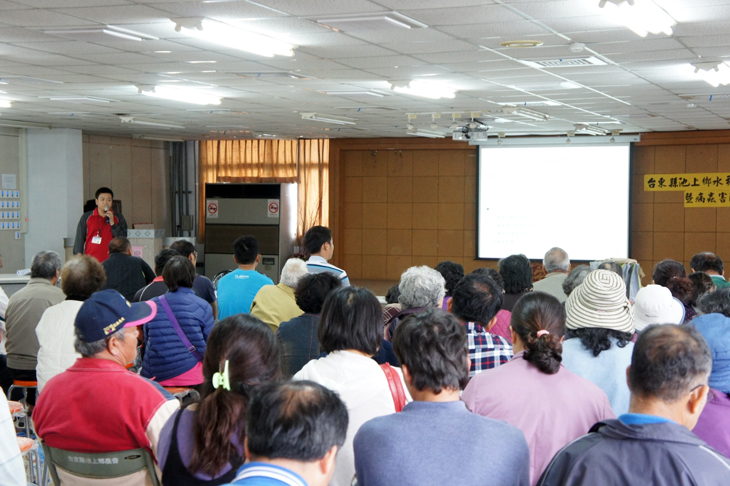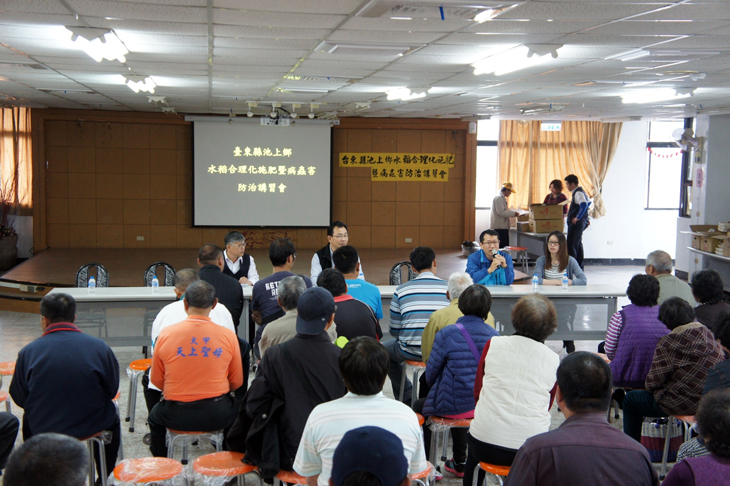In an effort to enhance grower management techniques regarding soil and crop nutrition and the control of pests and diseases, the Taitung District Agricultural Research and Extension Station (TTDARES) of the Council of Agriculture, Executive Yuan held the Smart Fertilization and Disease/Pest Control for Rice Lecture on the morning of March 23 at the Chishang Farmers’ Association Supermarket. The lecture was hosted by TTDARES Director Chen Hsin-yen, and over 100 attendees from legislator Liu Zhao-hao’s office, the Taitung County Council, the Taitung County Environmental Protection Bureau, the Chishang Farmers’ Association, and specialized rice production and marketing zones as well as farmers from neighboring towns and townships were present. Farmers participated enthusiastically and had a lot of interaction with the lecturers, affirming the TTDARES’s efforts at helping them learn useful techniques.
Director Chen stated that since the end of February, the temperature in Chishang has been extremely volatile, and the amount of precipitation has gradually increased. With Tomb Sweeping Day coming up in early April, this seems to be an accurate fulfillment of the old adage, “Eight days out of ten will see rain during the Tomb Sweeping season.” With the constant drizzle and dramatic changes in temperature, disease is very likely to strike rice crops. Soil management, fertilization, and disease control are closely linked. Diseases such as suffocation disease, sheath blight, and rice blast may be controlled well if the right measures are taken. In response, the TTDARES held the event to share effective soil and fertilization measures as well as eco-friendly disease/pest prevention techniques and organic cultivation strategies. Moreover, the Taitung County Environmental Protection Bureau was invited to promote the concept of using fungi to decompose rice straw instead of burning it. Such measures will not only make rice cultivation safer for the environment, but also reduce labor while increasing output.
First, assistant researcher Liao Jing-ying discussed soil management and smart fertilization. Through a case study on the nutritional demands of rice and soil sample analysis, factors influencing growth and output were discussed. Furthermore, the antagonistic effects among elements as well as fertilizer selection and application were introduced. Liao promoted the use of the TTDARES’s free soil sample analysis service so as to lower costs and boost output and quality in an effort to achieve industry sustainability. He reminded farmers that proper soil management helps reduce the occurrence of disease. He then discussed how rice straw processing, earlier soil preparation, deep burying of the straw, land leveling, and field draining and sunning can effectively reduce the occurrence of rice suffocation.
Then, assistant researcher Lin Jun-qi spoke on rice disease and pest control. With the arrival of weather fronts that rapidly change the weather from clear to rainy and cause drastic differences in temperature, plants are apt to collect disease-inducing dew in the mornings and evenings, and disease is especially common in fields not managed well, such as fields with: an overuse of nitrogen fertilizers, plants located close to each other, or a low degree of draft. In addition to biological materials, disease control also requires a boost of the disease resistance of the rice itself. Silicon can help with this, and this is especially apparent in the fight against sheath blight, brown spot, and rice blast; it has also been seen to halt the progress of bacterial leaf blight. Growers may take advantage of carbonized rice husks along with analysis of their soil to lower the costs of disease prevention.
Finally, Jiang Ming-zhe of the Taitung County Environmental Protection Bureau talked about the use of fungi to decompose rice straw in place of burning. Burning straw in the fields is harmful to the health of the person doing the burning, and it can also threaten the safety of those on nearby roads. With the recent upsurge in tourism in Chishang, Jiang emphasized the need for growers to work together in keeping the local environment clean and inviting. After rice has been harvested, a harvesting machine may be used to cut the straw into 5 – 7 cm long sections. Then, the straw should be spread evenly on the ground before filling the field with water so the straw will become saturated. Afterwards, fungi should be scattered onto the straw, and the water level of the field should be maintained at a depth of about 3 – 5 cm. When the straw turns black, soft, and rotten after about 14 days, it should be ploughed into the soil. The fungi will not only decompose the straw, but also allow the straw to become a natural fertilizer. The Bureau expressed its hopes that farmers will take to this new method.
